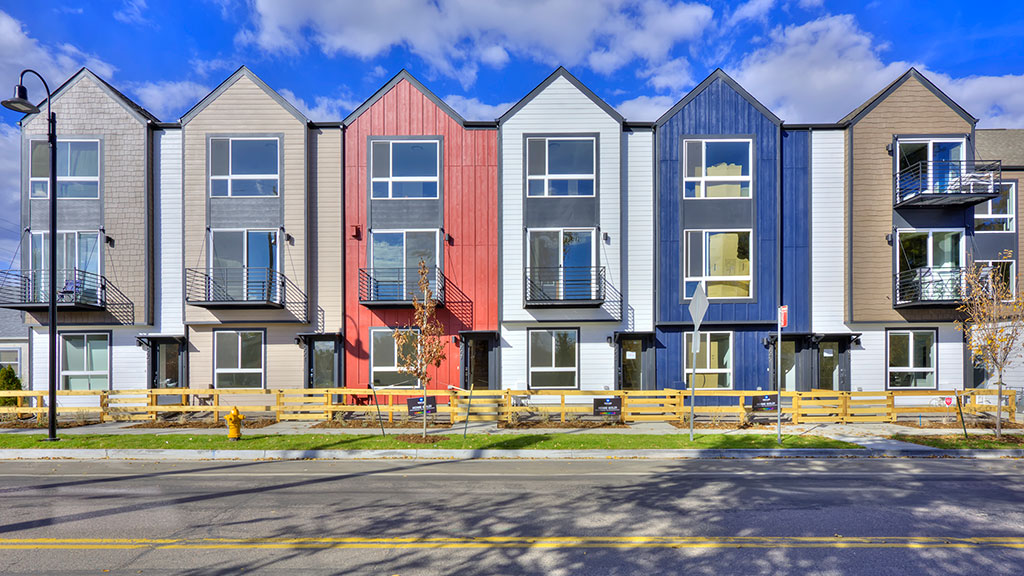
Condo vs. Townhome: What’s the Difference?
As you’re searching for the perfect place to live, you’re going to gather tons of useful information. You may also find yourself facing the condo vs. townhome debate, as both can sound like excellent options. Condos and townhomes are similar in some respects but very different in others. Determining which choice is best for you starts by comparing the two options and then going with the one that suits you best.
Condo vs. Townhome: The Basics
Condos are similar to apartments, while townhouses are more like single-family homes. Condominiums are typically individual units within a larger building or complex, owned by its resident, not rented from a landlord.
Townhomes are also typically owned by its resident, but a townhome is not a unit that sits in a larger building of units. Most townhomes are groups of individual homes that share one or more walls with other townhomes. Often called townhouses, rowhomes, or rowhouses, townhomes are often more than one story tall, and may even have a basement. Townhomes tend to give you more privacy than a condo, and they may also come with yard areas in the front and back.
Condo vs. Townhome: Ownership
As mentioned earlier, the resident will typically own their condo or townhome. However, when purchasing a condo or townhome, keep in mind that ownership looks a bit different than ownership of a single-family home. If you buy a condo, you are your specific unit owner and a joint owner of the overall building. You share collective ownership with other condo owners in the building, and the joint ownership extends to the grounds and other common areas. This means that you may be expected to share the cost of a new roof, boiler, or even elevator repairs with your fellow condo owners.
When you buy a townhouse, you own the structure as well as the land on which it sits. It’s similar to owning a detached home, except your structure shares one or more walls with adjacent structures. You still may be expected to share or negotiate costs with your neighbors. For example, if you want to build or replace a fence, you may have to work that out with your next door neighbor.
Condo vs. Townhome: Costs
The purchase price of condos and townhomes vary greatly, and one is not necessarily more expensive than the other. As with any property, purchase price depends on the size, condition, amenities, layout, and location.
One area where condos tend to cost more is with the monthly HOA fees. HOA stands for homeowners’ association, and condo HOAs typically have greater responsibilities that demand higher fees than townhome HOAs.
Condo HOAs are responsible for managing the building, the grounds, the gym, pool, and other interior and common exterior spaces. Townhome HOAs manage the general grounds and other common areas, but each townhouse owner is responsible for maintaining their own home and yard.
A few other costs come with purchasing either type of property. You’ll need to factor in the costs of home inspections, home insurance, and property taxes. These vary based on property type and location.
Mortgage rates are another consideration. These tend to be higher for condos than they are for townhomes, as condo mortgages are considered a bit riskier than other types of home loans.
Condo vs. Townhome: What’s Right for Me?
Now that you have a better understanding of the major differences between a condominium and a townhome, you may be ready to bring the condo vs. townhome debate to a close. If you’ve decided a townhome is the way to go, and the Denver-area is a prime place to live (which it is!), you’ll want to check out the brand-new Lakewood townhome selection at West Line Village. With rates lower than they’ve been in years, now is a great time to consider purchasing a townhome. Contact us today for a no-obligation walkthrough!